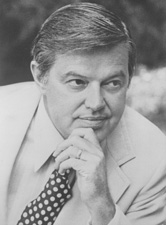Via January O'Neil, just because . . .
1. What's the last thing you wrote?
Ages ago, it seems, but the lyrics I collaborated on creating for Alyce Bochette's dance, "Salvage," which was performed last month.
2. Is it any good?
The "Salvage" piece, good as a voice piece (it was a duet that Katie Pankow and I voiced--Katie's the best, and she's headed off to UF to pursue an MFA in acting), but as a poem, maybe okay. It's deeply concrete and connected to the dancers.
3. What's the first thing you ever wrote that you still have?Journals and poetry writing from my sophomore year of high school.
4. Favorite genre of writing?Poetry, but currently moving to performative writing, that is, which is still poetry, but not meant to be published.
5. How often do you get writer's block?
Never. I go through periods of not writing, upto two years, but it's not that I'm trying to write and I hit an obstacle. Here, I'm talking about writing poetry. With any other kind of writing I do, blogging, occasional essay writing, then I never run into difficulties. I'm not much of a perfectionist, I guess.
6. How do you fix it?
Reading helps me get out of the doldrums. Believing in that nothing will last helps greatly. Why not risk it then? That we're all disappearing, and by we I mean everything governed by the decay of atoms, is a great, freeing comfort.
7. Do you save everything you write?
No. I've lost a good deal, almost always on purpose. Some pieces are performance (even individual poems) that I read for one occasion, in a regular reading, and then I let them go. Others, well, they get in books, and that gives them a permanence for as long as I'm alive. Notebooks and fragments, I try to keep, but with moving, being a little absent minded and careless, things just get lost, left behind.
8. How do you feel about revision?
Ah, the one thing that never ends. Maybe that's why I am liking the idea of performance--have a date, an occasion, you give it a go, and then good bye. But with traditional poems, always fun, involving to tinker. Mechanical. Intricate. And sometimes a wonder, too, as much as the initial creation.
9. What's your favorite thing that you've written?
Favorite. That's a tough word, because it won't be what I think might be my best work, or even work that other people like. Probably my favorite, at least this week, is
"Upon Hearing that My Grant Application Was Passed Over and the Winner Was a Bio-Tech Professor Who Has Designed Genetically-Altered Protein for Buckwheat Seed." The title comes from an email I sent to Denise Duhamel, who had written a support letter for me, for a grant that I did not win. She wrote back, "Oh, that sucks, but can I use that line for a title of a poem?" I wrote her back that she could, but only if I also wrote a poem with that title. So the story's a nice thing, but the poem also makes me happy to read because it is a little mean, irreverent, and political. Besides, I want to create a genetic strand called Omicron-Brockide 32. How cool is that?
10. What's everyone else's favorite thing that you've written?
Hmmm. Book?
The Sunshine Mine Disaster, probably. Poem? "To the coroner who did not have to draw my blood" is generally a good, crowd pleasing piece.
11. What writing projects are you working on right now?
Currently working on a bunch of failed fragments on the Gulf, from which my house is a mile away. Also revising a series on dance that I hope will be the "New" part of an intended "New
and Selected Poem" volume--I feel that's about where I am in my poet career. And for performance, I'm hoping that I might collaborate with a couple of very talented folks for something for
Art Royale 2010. Oh, and if my schedule works this year, I may do something my school's 24-hour Festival.
12. What's one genre you have never written, and probably never will?
A novel. I could see doing something collaborative with my wife (we've written a few chapters on a Florida condo mystery), and I've toyed making a novel of
The Sunshine Mine Disaster, but I get tired of the canine aspect of novel writing, the whole complicated architecture of it, where you sniff, sniff, sniff
everywhere, developing character, riffing on some subplot, and all that whatnot.
13. Do you write for a living?
Paper grading, syllabus writing, report writing, minute taking, assessment gathering, memo-happy professor of English. Nah.
14. Quote something you've written, the first thing to pop into your mind.
My Rhode Island Red goes cock-a-doodle-doo
in Providence, and in Bali she sings
orio orio orio-io-io, and in the Faulklands
she cries elgin baylor! And don’t think
it’s ever the same for my hen, my mad red hen.
from the "Dance of the Polyglot," something I've been revising.



